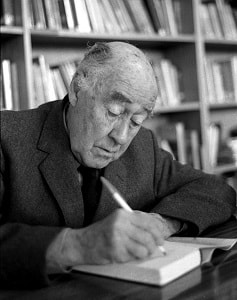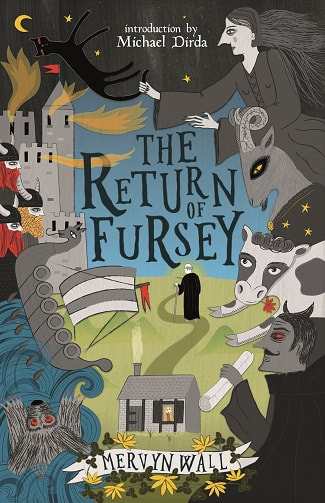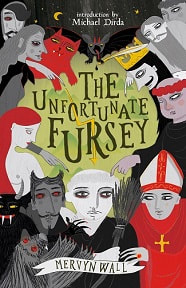|
BOOK DETAILS
Hardcover with dust jacket ISBN-13: 978-1943910939 List Price: $34.99 U.S. Pages: 218 Published: 2018 BOOK DETAILS Trade paper ISBN-13: 978-1943910922 List Price: $17.99 U.S. Pages: 218 Published: 2018 |
The Return of Fursey (1948)
Mervyn Wall With an introduction by Michael Dirda Hardcover / Paperback
Book Description
“Henceforth I will serve Evil. I'll become a most depraved character. I'll turn really wicked.” - Fursey Having fled being burnt at the stake in Ireland, the reluctant sorcerer Fursey is back in this sequel, trying to make a quiet life for himself as a grocer in the realm of King Ethelwulf. But when his old enemies seize his wife, Fursey resolves to embrace evil and return to Ireland to reclaim her. Readers will welcome the return of Fursey's unhelpful familiar Albert, the suave Prince of Darkness, and the powerful sorcerer Cuthbert, as well as such memorable new characters as George the Vampire and Sigurd the Skull Splitter. “The Return of Fursey shows no lessening at all in Wall's quality of imagination ... as with the best of Charlie Chaplin, or of Anton Chekhov or O'Casey, the laughter is very akin to high art.” - Robert Hogan “For anyone who doesn't know Fursey, this opportunity to do so is not to be missed.” - George O'Brien, Dublin Book Review “The Unfortunate Fursey and The Return of Fursey are not quaint esoterica for the specialist, folks, they are living masterpieces. They haven't dated slightly and are as fresh and as powerful as when they were first written.” - Darrell Schweitzer “The Unfortunate Fursey and its 1948 sequel, The Return of Fursey, have been called the Irish equivalent to T.H. White's The Once and Future King ... If you enjoy the dry, ironic humour of John Collier, Roald Dahl, Saki, or Jack Vance (and you should), you will like Fursey.” - Michael Dirda, Essays and Literary Entertainments |
also available through online retailers
|
HARDCOVER
Amazon US Amazon UK Barnes and Noble Wordery* *free shipping to 40 countries Fishpond* *free shipping worldwide Waterstones |
PAPERBACK
Amazon US Amazon UK Barnes and Noble Wordery* *free shipping to 40 countries Fishpond* *free shipping worldwide Waterstones |
MORE TITLES BY THIS AUTHOR
AUTHOR BIOGRAPHY

Mervyn Wall was born in Dublin in 1908. He attended Belvedere College, a Jesuit school for boys in Dublin, and obtained his B.A. from the National University of Ireland in 1928. He worked in the Irish civil service from 1934-1948 and later for Radio Éireann as Programme Officer. In 1957 he became Secretary of the Arts Council of Ireland, a post he held until his retirement in 1975. Though he published a number of novels, short stories, and plays, Wall is best remembered for his two comic fantasies centering on the medieval monk Fursey, which have been republished several times and praised by critics such as E. F. Bleiler and Darrell Schweitzer. Wall died in 1997.



